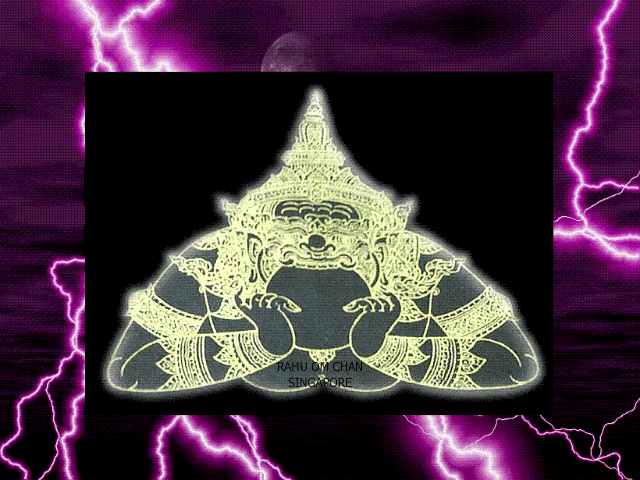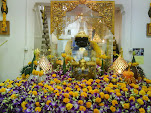By ancient tradition, the holiday is observed as a time of thanksgiving for acts of kindness one has received, and as a reaffirmation of familial and communal bonds. It is also a time of spiritual renewal, a spring cleaning of the house and of one's soul, wiping clean the slate to begin the new year afresh.
The strength of these bonds is evident in the effort which Thais make to observe them. Many Thai laborers receive only one long holiday per year, the four days of Songkran. Public transportation is strained to the limits as city-based Thais rush home to their villages to share the holiday festivities with their families.
Six ancient values are celebrated at Songkran. "Thanksgiving" honors those who have shown one goodwill. One demonstrates his or her recognition of their kindness by pouring lustral (water blessed by Buddhist monks) on Buddha images, elders, and respected individuals.
For the second value, one honors the contributions of one's ancestors by performing good deeds towards others, "merit-making" as the Thais call it. Worshipers release fish into the rivers and ponds and free birds from cages as an act of merit-making.
One acknowledges the third cultural value of responsibility towards family and home, by thoroughly cleaning one's house.
"Respect for religion" is both for the roles of the Buddhist monks and for the community they serve. One joins with friends to clean the temples, donate food to monks, bathe Buddha images, sprinkle water over monks, and beautify the temple compound.
The fifth value involves acknowledging ones debt to friends for their good deeds. Friends exchange food and sprinkle water to cool each other. Finally, one celebrates the spirit of communal cooperation by participating in community activities, sharing the holiday with others, and spreading happiness and goodwill all around.
The central element of Songkran is water. As in most societies, water is a potent symbol of abundance, fertility, purity, and spiritual cleansing; ritualistic bathing figures in Thai rites of passage and ceremonies throughout his or her life.
Songkran celebrations run for three days
In the morning, Thais stand by the roadside to give alms to passing monks. In the afternoon, the town's principal Buddha images are carried in a grand procession through the streets while spectators toss small bowls of water on them to clean them.
胡


No comments:
Post a Comment